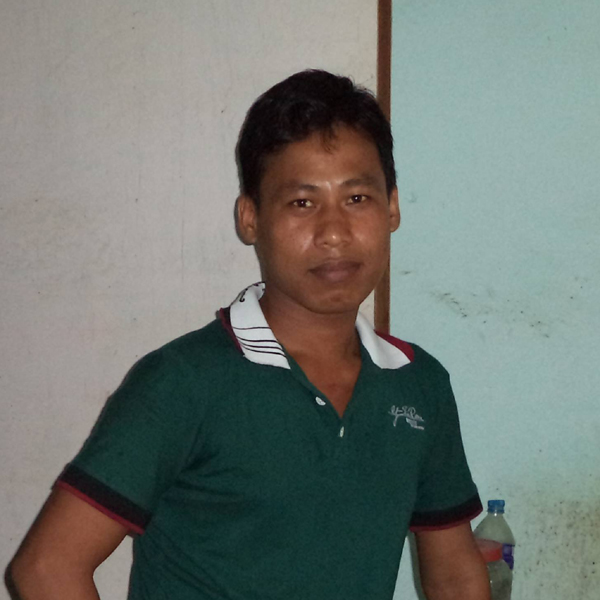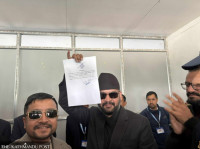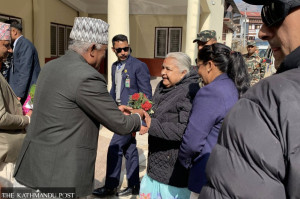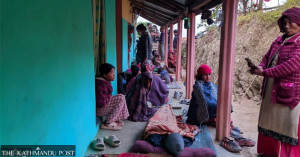Koshi Province
Computer class ineffective in Jhapa community schools
Schools lack computers and qualified teachers to run computer science classes.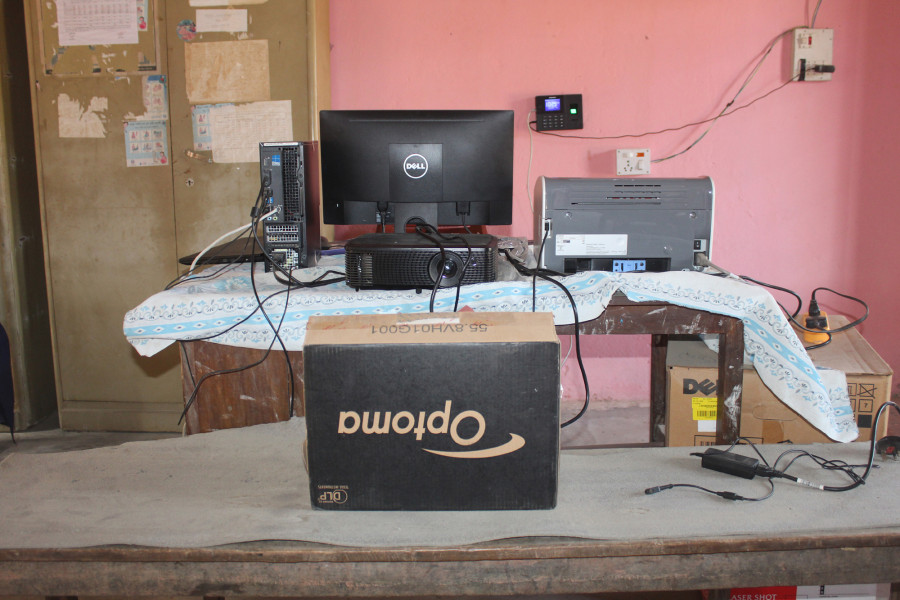
Arjun Rajbanshi
Aashik Majhi, a seventh-grader in Maheshpur Basic School, a community school in Jhapa, has been studying computer science for the past three years. He sits for formal examinations for the subject since it has been included in the school curriculum. Computer science is a localised subject carrying 100 marks under the school curriculum. Majhi, however, does not know how to use a computer.
Having taken computer science classes for three years and sat for theory examinations several times, Majhi got to see a computer for the first time about four months ago. “Since then, I have seen a computer three times,” he said.
Majhi and his classmates have learnt only to turn a computer on and off.
Maheshpur Basic School is one of many community schools in Bhadrapur that included computer science as a ‘local subject’ after the local level elections in 2017. The school has been ‘teaching’ the subject to grade three students and upwards. However, the institution does not have the machines or qualified teachers.
“The municipality provided a computer in August for official use. We have been using the same computer to teach the students whenever we can manage,” said Narad Pyakurel, the headmaster of Maheshpur Basic School.
All 15 local units in Jhapa included computer science according to the existing legal provisions. Schedule 8 of the Constitution of Nepal gives the local government explicit authority to manage school education. This means the local governments are free to hire and fire teachers, develop curriculum and hold examinations till grade 12.
Yogendra Paudel, an officer at the education unit of Bhadrapur Municipality, said that none of the community schools in the district has created a post for computer science teachers. Most of the schools assign teachers with workable skills in using the machine to teach the subject. “We have distributed at least one computer in each community school. But the machines lie unused for a lack of qualified teachers to teach the subject,”
There are altogether 32 community schools in Bhadrapur Municipality.
Some of the community schools in the district have bought computers for teaching purposes out of their internal budget. They, however, lack skilled human resources to use the machines to teach the students.
Meanwhile, Amrit Secondary School in Bahradashi Rural Municipality has a laptop and 30 computers. The school has a separate “computer room” with internet connectivity and other essential infrastructure required to run the classes. But it does not have qualified teachers. “We haven’t been able to run computer science classes regularly due to the lack of qualified teachers,” said headmaster Ram Bahadur Budhathoki. “The rural municipality has assigned one qualified teacher who visits the school once a week to teach students.”
Bahradashi Rural Municipality appointed three teachers to teach computer science in 16 community schools in the municipality. “There are three “mobile” teachers. They teach 16 schools but haven’t been able to give full time to any one of them. We haven’t been able to appoint a computer science teacher in every school because we don’t have enough budget,” said Gyan Bahadur Paudel, chief of the education unit at the rural municipality.
Almost all the local bodies in the district introduced computer as a local subject without proper homework. As such it’s the responsibility of the local unit to hire the particular subject’s teachers at community schools.
“Technical education is essential for students. So we decided to include computer science as a local subject,” said Jiban Kumar Shrestha, mayor of Badrapur Municipality. “But we have received reports that highlight the futility of this exercise. Computer science classes were introduced to make every student computer literate; a skill that’s necessary in today’s time but a lack of the subject’s teachers have rendered our move useless.”




 20.12°C Kathmandu
20.12°C Kathmandu